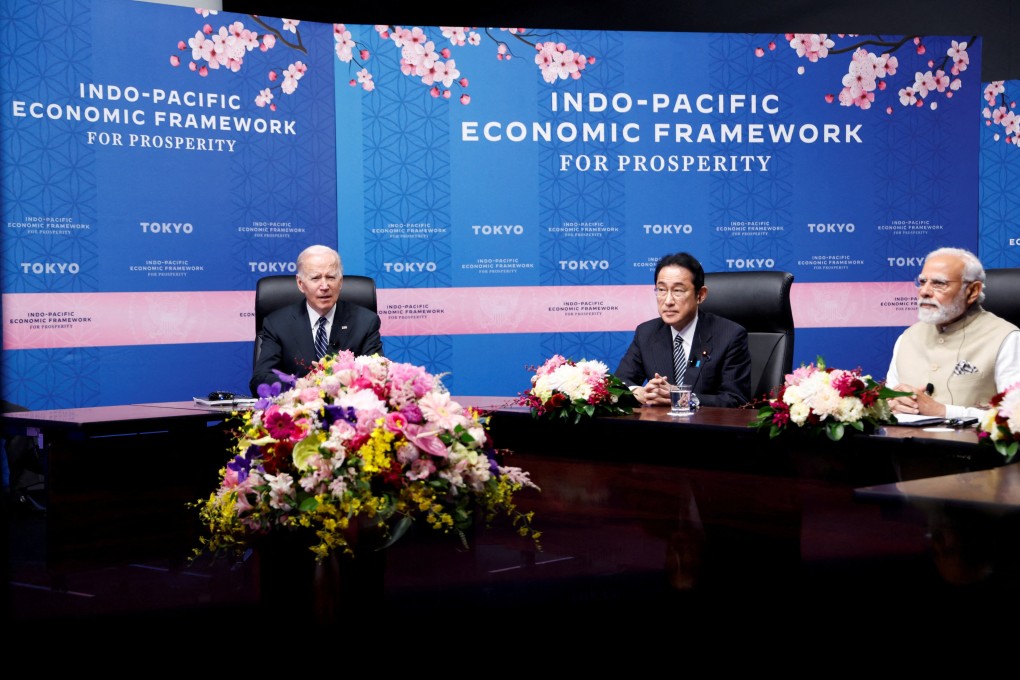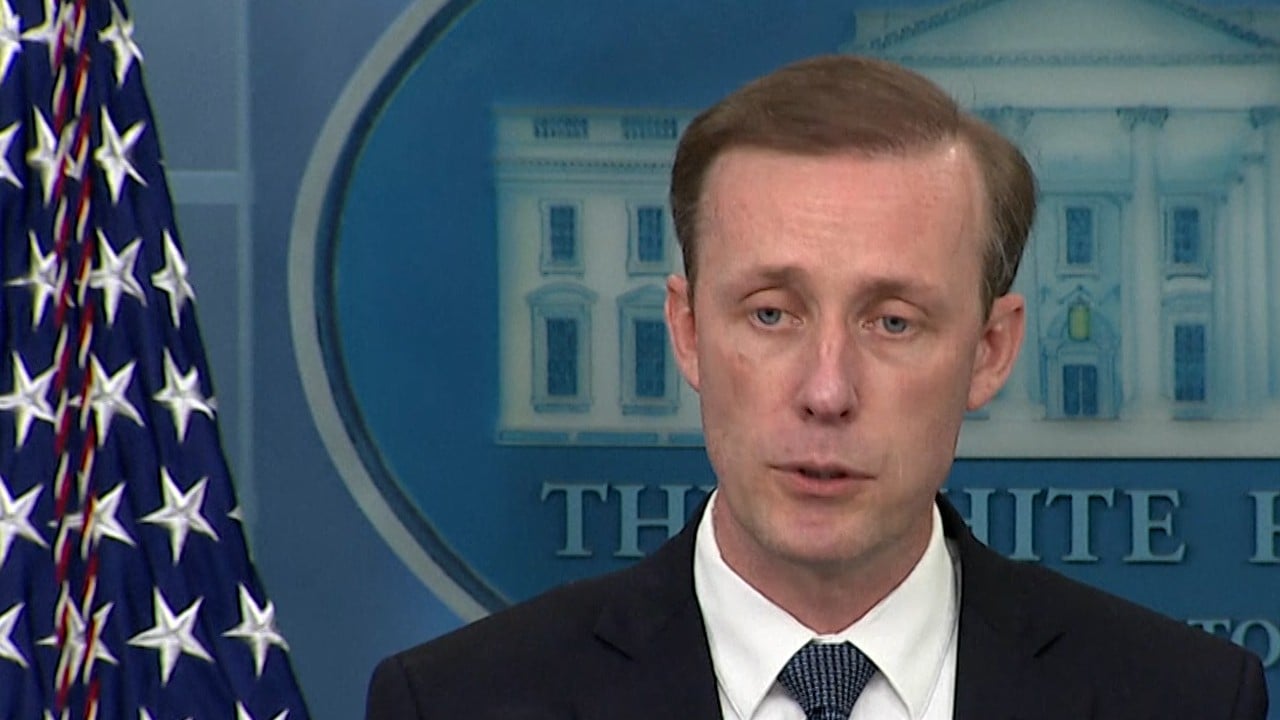Biden’s Indo-Pacific economic plan must be stronger if it hopes to counter China: report
- Indo-Pacific Economic Framework, US president’s programme for region, is failing as alternative to trade deals China offers, Asia Society Policy Institute says
- US risks ‘becoming spectator’ as partners work ‘among themselves and with China to strengthen supply chain connectivity, regional economic integration’: report

A major US-led economic initiative aimed at countering China’s many trade agreements in the Indo-Pacific region is failing and needs to be urgently strengthened if it has any hope of keeping pace, a new report concludes.
The report, released on Monday by the Asia Society Policy Institute (ASPI), argues that the Indo-Pacific Economic Framework (IPEF), announced in May 2022 by US President Joe Biden with great fanfare and joined by 14 countries, will probably fall short of creating a true alternative to more comprehensive trade agreements China is offering in the region.
“To put it bluntly, if the US does not take a bolder approach, we risk becoming spectators as our partners work among themselves and with China to strengthen supply chain connectivity and regional economic integration,” wrote ASPI Vice-President Wendy Cutler, formerly a negotiator in the office of the US Trade Representative, and Clete Willems, a partner at the Akin Gump international law firm.
The IPEF outcomes released to date, the report said, represent only a “modest” step forward. “If this is any guide to what the rest of IPEF is likely to entail, we can expect limited outcomes in other areas as well,” the report warned.
In May, the US and 13 other Asia-Pacific nations reached an agreement to expand cooperation concerning supply chains – one of its four pillars, which also cover issues of trade, clean energy, tax and anti-corruption, as a way to counter China.
However, the IPEF has faced scepticism given the lack of tariff reduction and other enforceable market-opening measures that are hallmarks of traditional free-trade agreements.

